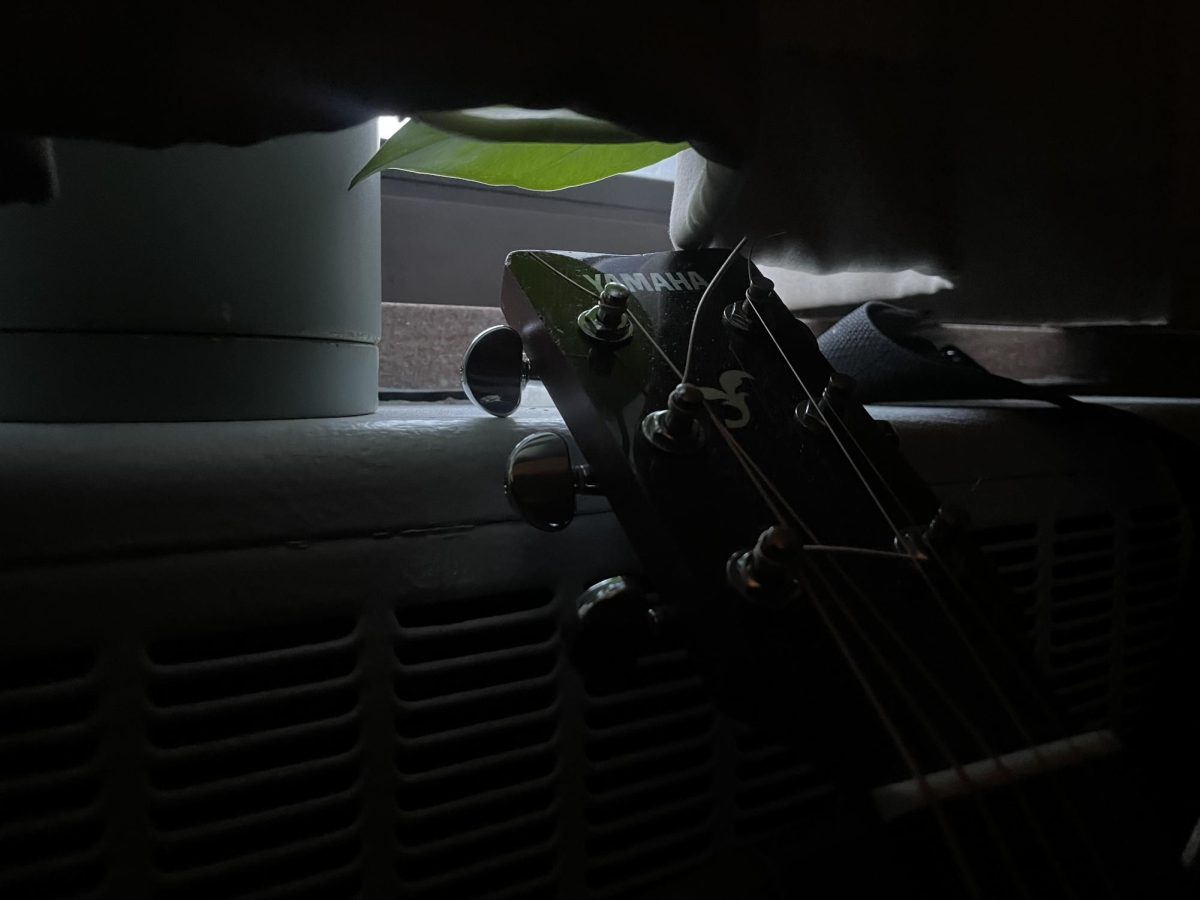Campus Pointe, 345 Flats, Eagles Landing, Tri-Towers, University Oaks and Centennial Court are a few of the many places students can explore on and off campus, but finding the right home away from home can be difficult.
Factors such as parking, contract agreements, roommate status and safety, among others, play into settling on the right place. This can be a lengthy process for some students, as they have multiple off-campus housing options, along with the choice of dorm living.
One of the first steps to finding the right housing is exploring all available options. Students should start the process by going to the location in person instead of selecting a virtual tour, said Chris Sestak, managing attorney for the university’s Student Legal Services.
“The [online] model unit is never as nice as the unit you’re getting, especially by the time they turn it around and hopefully thoroughly clean it,” he said. “If you want to see an actual unit, you can certainly request that or see if you can see the unit you’re going to move into so you know what you’re getting into.”
Understanding an agreement and insurance
Whether it’s dorm living or off-campus housing, it is important to consider the leasing agreement, said Sgt. Tricia Knoles of the Kent State University Police Services.
The leasing agreement is a mutual agreement between property management and renter(s), laying out guidelines to follow, such as payment costs, pet ordinances and property use restrictions such as lawn care, maintenance and snow removal.
Additionally, check to see if this document is a “joint and several” or “individual” leasing agreement. Most agreements are “joint and several,” meaning if there are legal disputes or rent owed, a landlord can come after all renters. “Individual” signifies only a singular liable tenant, Sestak said.
A guarantor, or a person who can be held liable that co-signs the contract, is also typically required. A family member, a usual guarantor, can be sought after by a landlord in cases where litigation or rent owed is involved, Sestak said.
Sestak said renter’s insurance has become a requirement for renters. It is used to protect a renter’s personal belongings and the property, like in the case of someone falling and injuring themself in their house or people breaking a cabinet or door during a party.
“Typically, landlords want you to get insurance in case there’s some type of casualty to the property,” Sestak said. “Landlords are trying to get themselves covered, in essence for casualty to the property.”
Another option when researching renter’s insurance is to bundle it with existing plans one’s family may already own through an insurance company, such as State Farm or Progressive, Sestak said.
“I also tell students a lot of times to go back to your parents and see if your parents have homeowner’s insurance, if they can get a rider or an additional policy,” he said. “You know how you see in the commercials, you bundle your insurance and save.”
Finding out what is being offered
Outside of the leasing agreement, parking and walkability are other factors to consider, Knoles said.
These are observations that can be made quickly when pulling into a unit to tour, she said.
For example, Paloma, a Kent apartment complex located at 1450 E. Summit St., has a parking garage unlike most housing options, which have only outdoor parking. At Paloma, it costs $90 a month for parking garage privileges compared to $60 a month for the outdoor surface parking, as of February 2024.
With most housing locations just having outdoor parking, it is highly recommended to find a location where it is well-lit and does not have large shrubbery or obstacles where someone could potentially hide, Knoles said.
Whether someone is entering or exiting their vehicle or walking back from campus at night, it is important to ask about video surveillance, where cameras are located, security resources and the ability to receive a parking spot close to one’s unit, she said.
Dark driveways or parking lots may be an issue when it gets dark at night, says Knoles.
“Be aware of your surroundings,” she said.
Sestak said to also be aware of what is included within monthly rent and ask property management to depict what makes up rent charges for services or add-ons offered such as parking, trash collection and internet.
“A lot of times, students budget down to the penny and if they hear the rent is like $750, they’re like ‘Oh, I can afford that’ and then they don’t see all the add-ons,” Sestak said.
At University Edge, a Kent apartment complex located at 5694 Rhodes Road, a $30 monthly fee was built into a person’s monthly rent, and if that amount in utility use was exceeded, a resident was charged extra to make up the difference. For the 2023-2024 leasing term, this quota was eliminated.
In regards to keeping self-defense items within housing parameters, Knoles said only pepper spray is allowed to be carried on campus by students.
“I think pepper spray is just a good safety distraction to use that is probably the easiest to figure out how to use,” she said.
Other weapons, such as firearms, cannot be kept within dormitories. For off-campus living, self-protection options would need to be discussed and approved by property management, Knoles said.
Whether a student plans to live alone or with roommates, identifying the entrances and exits, particularly doors and windows that have locking capability, is crucial, says Knoles.
While touring, ask to see where those locations are and that all mechanisms work, Sestak said.
“You know, it’s a lot of little things to make sure everything works,” he said.
If a student settles on a place, they should take pictures and document areas throughout the whole unit, especially in “high-traffic areas” such as bathrooms and the kitchen, before moving in and then when moving out, Sestak said.
“So then if there’s any disputed damages, you have the evidence and you’re in control of that evidence,” he said.
Using the resources
Knoles said a resource students should use to ask questions is the university’s Student Legal Services. SLS is within students’ tuition, so appointments can be reserved where professionals can assist in explaining details of a leasing agreement.
“[SLS] offers lease reviews,” Sestak said. “It’s one of the most important services we offer, but it’s the one least utilized.”
Do not wait until it is too late to come see a lawyer, Sestak said. He encouraged students to read over the lease they receive and gather questions and concerns to approach a professional with.
“[Renter] picks out the things you don’t understand,” he said. “And I’ll go over those with you, and I’ll point out some things that I see or the critical things.”
Anthony Zacharyasz is managing editor. Contact him at [email protected].























